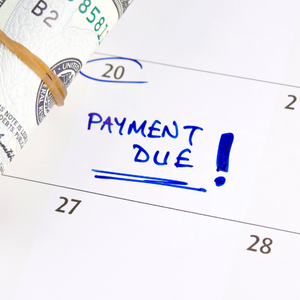
The complex world of home transactions includes understanding costs like HOA fees, which can affect your financial planning. Who pays these closing fees in North Carolina can affect negotiations and property prices. This guide clarifies HOA closing fees and offers practical advice to help you decide. Know how HOA fees work before selling or buying a home to avoid surprises. Zack Buys Houses can help you navigate the process with ease.
Brief Overview
Understanding HOA costs and responsibilities during North Carolina property transactions is crucial. Buyers and sellers must know who pays these fees at closing and any adjustments, such as prorated dues. Legal disclosures help all parties understand their obligations, and the transfer fee is usually negotiated between the buyer and seller. Communication and negotiation streamline the closing process, ensuring a successful transaction and avoiding financial surprises. For a seamless selling experience, consider working with cash home buyers in North Carolina and nearby cities who can simplify the process and help you close faster. Expert advice improves financial planning and compliance.
Key Highlights
- HOA fees in North Carolina influence both buyers and sellers, covering essential communal services.
- Sellers typically pay HOA fees up until closing day, with negotiations possible for fee responsibilities.
- Pro-rated HOA dues are based on property ownership duration within a billing cycle for fair fee distribution.
- HOA disclosure requirements mandate detailed community and financial information for informed buyer decisions.
- The transfer fee is often a seller’s responsibility, covering administrative ownership updates.
Understanding HOA Fees in North Carolina
In North Carolina, HOA fees affect buyers and sellers. Communities’ maintenance and management fees cover essential services that ensure harmony. Know who pays these closing costs for homebuyers and sellers. The following section covers HOA responsibilities and the key HOA dues components homeowners should know about. Home sellers and buyers can better manage these costs with this knowledge.
Overview of HOA Responsibilities
HOAs maintain parks, pools, and community centers in North Carolina. Homeowner fees cover maintenance, landscaping, and repairs, preserving the community’s appearance and value.
HOAs enforce property standards and noise regulations to maintain order and consistency. Although strict, these rules protect property values and create a cohesive neighborhood.
In addition to paying dues, homeowners participate in community decisions and meetings. Understanding HOA roles and responsibilities helps buyers and sellers assess property value and maintain community living.
Key Components of HOA Dues

North Carolina HOA dues cover utilities, common area insurance, and shared space maintenance. These fees maintain neighborhood standards and safety.
Part of the dues goes into a reserve fund for major repairs or upgrades, helping the community stay financially stable and ready for emergencies. Administration costs like management, security, and trash removal are included.
Sellers must understand these factors to price a home competitively and emphasize community upkeep. Buyers can then determine if amenities and services justify the price, making better property choices.
Responsibilities for Paying HOA Fees at Closing
Understanding who pays HOA fees during a North Carolina closing requires knowledge of typical arrangements and negotiations. These fees usually cover dues until the sale date to smooth property ownership. Buyer and seller roles vary by contract and local customs. This section discusses who pays these costs and how negotiations can change them during the real estate closing. Home sellers and buyers can better prepare for closing costs by clarifying these details.
Who Typically Pays the HOA Costs
North Carolina sellers pay HOA fees until closing to cover community costs. All dues are paid before transferring ownership, ensuring a smooth financial transition for both parties.
Such arrangements can be negotiated. Sellers may cover HOA fees or offer incentives to attract buyers in competitive markets. Conversely, buyers may accept costs to strengthen their offer.
Closing attorneys make these agreements clear and legal. Sellers can streamline closing and attract buyers by managing HOA costs and communicating openly.
Negotiating HOA Fees During the Estate Closing

At closing, negotiating HOA fees can help sellers save money or attract buyers. Market conditions and party agreement affect these discussions. Prorating fees provides fairness and transparency by splitting costs by ownership date.
Special assessments and fee increases can be addressed at this stage. Sellers may cover some costs to reduce the buyer’s financial burden, and buyers can negotiate terms to lower their costs. Working with cash home buyers in Charlotte, NC, and neighboring cities in North Carolina can also simplify the process and help sellers close faster with fewer complications.
The contract clearly states all negotiated terms when working with a closing attorney. Communicating and planning help both sides reach a fair agreement, making the real estate transaction easier and more beneficial.
Pro-Rated HOA Dues at Estate Closing
In North Carolina, buyers and sellers must understand prorated HOA dues during the estate closing. Based on how long each party owns the property in a billing cycle, these dues are adjusted. No party overpays because fees are distributed fairly. Understanding how to calculate these dues can help you avoid unexpected closing costs. To help you navigate real estate transactions, we’ll calculate these dues and Northern adjustments.
| Aspect | Description | Implications for Buyers | Implications for Sellers |
|---|---|---|---|
| HOA Dues Proration | Adjusting HOA dues on a pro rata basis to reflect the buyer’s and seller’s respective periods of ownership during the transaction month. | Buyers are charged for the HOA dues from the closing date to the end of the month. | Sellers are responsible for HOA dues from the beginning of the month to the closing date. |
| Calculation Method | Typically calculated daily, based on the number of days each party is responsible for during the month of closing. | Buyers need to understand how their portion is calculated to ensure a seamless move into the community. | Sellers need to confirm the calculation method to prevent unnecessary disputes or overpayments. |
| Adjustment Timing | The adjustment is made at the closing table, affecting final settlement figures. | Ensures clarity on final costs at the closing and allows for proper budget planning. | Secures accurate final sale proceeds after deductions. |
| Regional Factors | Local interpretations and practices can affect HOA dues. | Buyers should consider regional differences when making financial commitments. | Sellers must check local practices to avoid post-closing issues. |
In this table, Northern regions’ prorated HOA dues adjustments and their effects on property transactions are discussed.
Calculating the Pro-Rated Dues
HOA dues are prorated in North Carolina, so buyers and sellers pay only for the time they own the property. The seller pays fees until closing, then the buyer takes over. Fair division keeps finances smooth and transparent for both parties.
A closing credit is usually given to sellers who have prepaid dues. Sellers avoid financial loss, and buyers start ownership without additional costs with this adjustment. Accurate and fair calculations are usually done by closing attorneys.
Also check for special assessments or community charges that may affect the final amount. Understanding these details beforehand prevents disputes and ensures a smooth, balanced transaction for all.
Adjustments for HOA Fees in Northern Regions

North Carolina HOA fees may vary due to snow removal and maintenance in the north. In colder months, when upkeep is higher, these adjustments ensure safety and community standards.
This is why northern HOA fees often include winter amenities or seasonal services. When negotiating or reviewing closing costs, buyers and sellers should account for these variations for fairness and transparency.
Asking the HOA board or management company about fees before closing benefits both parties. A smoother and more accurate transaction results from this proactive approach to prepaid dues, delayed billing cycles, and regional adjustments.
Legal Considerations: HOA Disclosure and Compliance
Real estate sellers and buyers in North Carolina must understand HOA disclosure laws. Local laws require these disclosures to inform parties of their financial responsibilities and community operations. This section clarifies disclosure requirements and who pays the HOA transfer fee during closing to help with compliance and estate transactions.
Understanding the HOA Disclosure Requirements
HOA disclosure laws in North Carolina ensure buyer-seller transparency. Community fees, rules, finances, and pending assessments must be disclosed by sellers. These disclosures inform buyers’ investment decisions and neighborhood finances.
HOA information errors can delay closing or cause legal issues. To stay compliant and avoid disputes, sellers should verify their documents with the HOA board or management company.
Both parties benefit from proper disclosure. Buyers and sellers gain clarity and trust, making transactions easier. For expert advice and support when buying or selling an HOA property, contact us.
Who Pays for the HOA Transfer Fee?
North Carolina sellers pay the HOA transfer fee, which covers administrative costs for updating ownership records. This fee ensures a smooth property transfer and seamless community services.
Market or negotiation conditions can affect payment. To attract buyers, sellers may cover the cost in competitive markets, while buyers may pay it to close the deal faster in slower ones. Specifying this responsibility in the purchase agreement helps avoid closing disputes.
Discussing the HOA transfer fee early and obtaining written confirmation of all terms will simplify and avoid costly misunderstandings. We offer expert advice and a seamless closing process for both homebuyers and sellers.
When negotiating the HOA transfer fee in North Carolina real estate closings, consider these factors:
- Understand the Standard Practices: Learn about local HOA transfer fees to set realistic expectations.
- Review the HOA Documents: Check the HOA’s governing documents for fee requirements and negotiation room.
- Assess the Total Closing Costs: To evaluate its financial impact, consider how the transfer fee fits into the overall closing costs.
- Explore Seller Contributions: As an incentive to close, ask if the seller will pay the transfer fee.
- Leverage Market Conditions: Assess market conditions like supply and demand to determine each party’s negotiating power.
- Factor in HOA Benefits: HOA benefits and services should be considered to determine the fee’s value.
- Consult Legal Guidance: Consult a lawyer to comply with local laws and negotiate the fee lawfully.
Ensure your negotiating strategy aligns with these insights for a successful closing experience.
Who pays HOA fees at closing in North Carolina is important for buyers and sellers. Makes agreements and transactions clearer. Reread the acquisition agreement and confer with appropriate parties to understand duties and avoid surprises. Clear communication about these fees can help first-time and experienced homebuyers sell smoothly. For professional help and a quick, easy sale, contact Zack Buys Houses immediately.
Need to sell your home and navigate HOA fees at closing? Zack Buys Houses makes it simple. We provide fair cash offers, handle all HOA-related details, and ensure a smooth, hassle-free sale. Have questions about who pays HOA fees or ready to sell? Call us at 704-769-0141 for a no-obligation offer. Get started today!
FAQs
Who typically pays HOA fees at closing in North Carolina?
North Carolina sellers often pay HOA fees until closing. Negotiate this in the purchase agreement.
What are prorated HOA dues, and how are they calculated?
Pro-rated HOA dues are based on how long each party owns the property per billing cycle. These fees ensure a fair ownership period distribution.
What is included in HOA disclosures in North Carolina?
HOA disclosures must include financial statements, meeting minutes, and community rules to inform buyers of the community’s finances and operations.
Who pays the closing HOA transfer fee?
The seller usually pays the HOA transfer fee, but the buyer and seller can negotiate.
How can unexpected HOA costs be mitigated during a property transaction?
During contract formation, HOA responsibilities and disclosures can be clarified to reduce unexpected costs.
Helpful North Carolina Blog Articles
- Selling Your Investment Property in North Carolina
- Selling Your North Carolina Home With An Existing Mortgage
- How To Successfully Sell A House With Tenants In North Carolina
- Appraisal Repairs in NC: How They Impact Your Home Sale
- Documents Required to Sell a House in North Carolina
- Closing Costs Without a Realtor in North Carolina
- Filing A Quitclaim Deed For Real Estate In North Carolina
- Real Estate Division In North Carolina Divorce Cases
- Selling Your North Carolina Home Without A Real Estate Agent
- Who Pays the HOA Fees at Closing in North Carolina
- How to Sell a Condemned House in North Carolina
- How to Sell a House As-Is in North Carolina
- Does a Seller Pay Closing Costs in North Carolina
- Can You Sell a House That Failed Inspection in North Carolina
- Lease Options to Sell Your North Carolina Home

